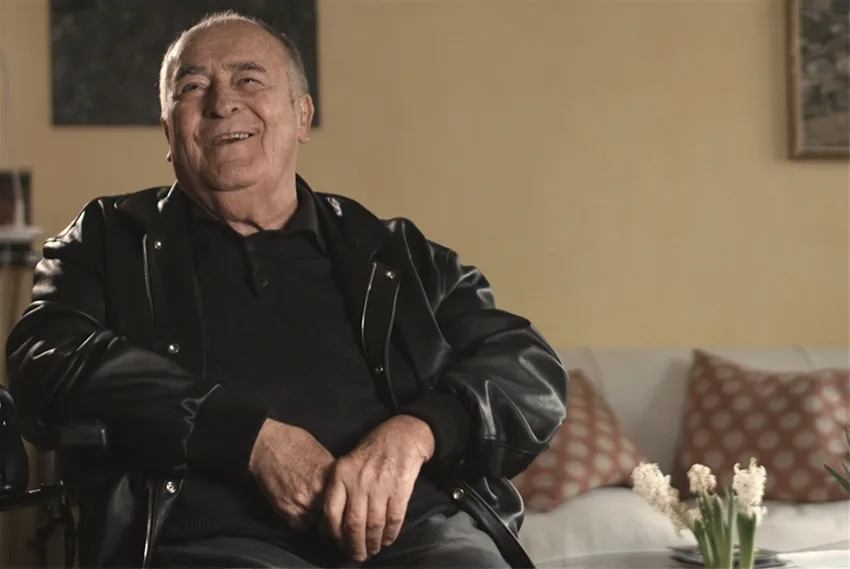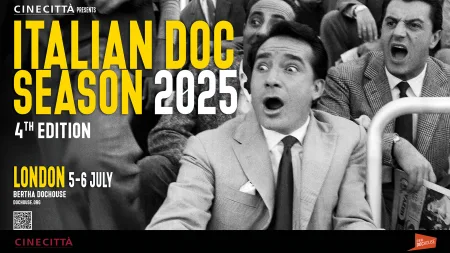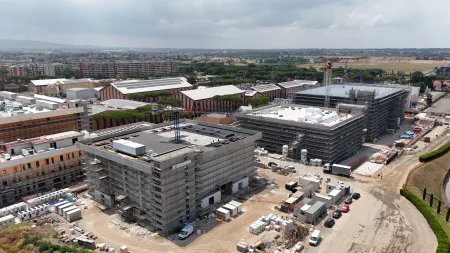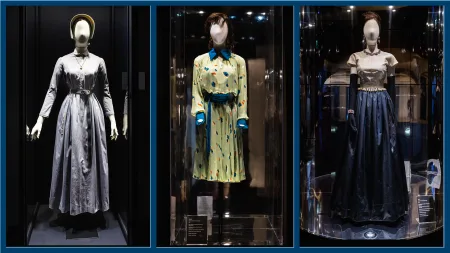6 June 2019
Bertolucci, the last interview: between Marlon Brando and the “big nipple”
A train is running towards the audience, red flags wave around the stem: it’s a scene of Bernardo Bertolucci’s 1900 that was never edited and that the director gave Mario Sesti as a present after a Q&

A train is running towards the audience, red flags wave around the stem: it’s a scene of Bernardo Bertolucci’s 1900 that was never edited and that the director gave Mario Sesti as a present after a Q&A with the Italian critic at the Rome Film Festival. That was one of the many encounters of the two. The last one took place on the occasion of an interview for the series Cinecittà – The Craft of Cinema produced by Erma Pirctures in association with Istituto Luce Cinecittà and in collaboration with Sky arte. This has a special flavor though, as it is the last interview of the director, who died a few months later on November 26th, 2018. The work is now presented in the program of Cannes Classic, the prestigious section of the festival showcasing restored classics and documentaries on cinema.
For this film, Mario Sesti chose a personal if not even private angle, moving from the image of that fast and triumphant train that connects to the dawn of cinema and suggests the film’s title – Bernardo Bertolucci: No End Travelling. Infinite tracking shots, both in a spatial and temporal dimension, like the cinema of the Parma-born director.
The film includes many anecdotes not to be missed, like the choice of Marlon Brando for Last Tango in Paris. The American actor was considered “too old and out of shape” by Paramount that ultimately declined the film, then picked up by the United Artists. The star had a very bad reputation though. “Gillo Pontecorvo, a shy and gentle man, had just completed Queimada with Brando and confessed me that he used to go on the set with a pistol hoping to have the chance to shoot him.” The Oscars for The Last Emperor that won over The Empire of the Sun. “At the Oscars – that at 21 I promised myself to turn down as Jean Paul Sartre did with his Nobel – there was this mystical and inspired atmosphere. That made me laugh. When I went on stage, I made I joke that freezed the entire room for the longest time, until the liberating applause. I compared Los Angeles to a big nipple. The morning after, a DJ on the radio resumed by joke, big nipple versus big apple.”
Sesti states: “When I had this long conversation with him that then became the core of this film, Bertolucci had already been on a wheelchair for a long time and knew very well the fragility of the body, a theme that he had explored through sweet and touching films like The Sheltering Sky, Little Buddha, and Stealing Beauty. The documentary bear witness of many encounters that we had (sometimes on stage with big names like Patti Smith, Wim Wenders, Gérard Depardieu, Marco Bellocchio) and long conversations on films and directors, on his cinema and that of the filmmakers that we loved. Originally created as an episode for a series, the film is a homage to an unparalleled auteur – how many directors have been a myth of the Nouvelle Vague and won an Oscar at the same time? It’s also a personal way to preserve the memory of those moments and prevent them from disappearing.”
Sesti, who can be seen in Bertolucci’s house with the producer Max De Carolis, managed to keep the narration engaging also thanks to the use of tripartite screen that allows him to superimpose words, archival images, photographs and gazes. The film portrays many moments from the director’s career, from his lunch with Billy Wilder who wanted to see his house full of Art Nouveau objects, to the encounter with Francis Ford Coppola singing a tune from The Conformist.



